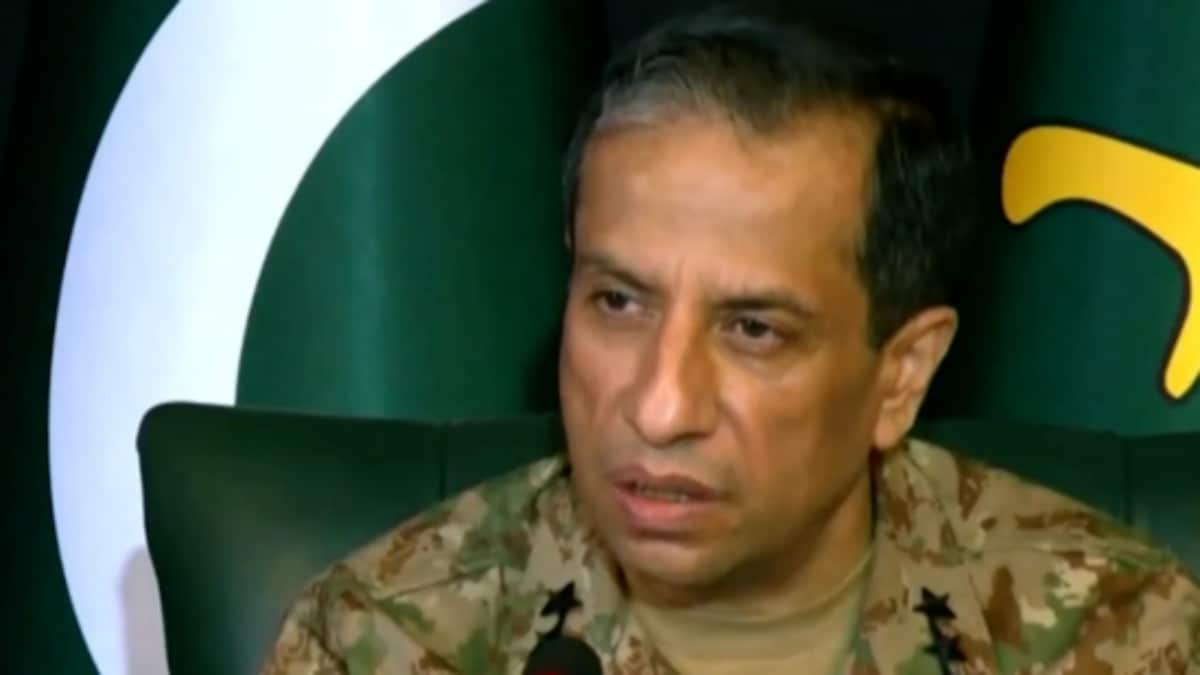Pakistani military spokesperson Lieutenant General Ahmed Sharif Chaudhry made provocative remarks against India’s decision to block the Indus Water Treaty, which sounded oddly similar to the 26/11 mastermind and LeT terrorist Hafiz Saeedread more
Amid the brewing
tensions between India and Pakistan
, Pakistani military spokesperson Lieutenant General Ahmed Sharif Chaudhry issued a threat to India, which sounded similar to the one made by internationally recognised terrorist
Hafiz Saeed
. The remarks from the Pakistani military spokesperson came during his provocative address at a public gathering.
During his speech, Chaudhry slammed India for putting the Indus Water Treaty into abeyance. He warned that Pakistan would hit back if India attempted to disrupt the flow of water. It is pertinent to note that India put the Indus Water Treaty on hold shortly after the devastating terror attack in Pahalgam, Kashmir, that led to the death of 26 tourists. The four terrorists involved in the attack are still at large.
🔴#BREAKING Pakistani military spokesperson @OfficialDGISPR is at a university in Pakistan delivering hate and violence-encouraging speeches against India echoing what terrorist Hafiz Saeed said some years ago !
Shameful! pic.twitter.com/W7ckNPePOH
— Taha Siddiqui (@TahaSSiddiqui) May 22, 2025
The Pakistani military spokesperson’s remarks mirrored the proclamation made by Lashkar-e-Taiba founder Hafiz Saeed. In the video circulating online, Saeed can be heard saying the same words. It is pertinent to note that Saeed was the mastermind of the 2008 Mumbai terror attacks and is known for his inflammatory speeches against India and the United States.
Here is Hafiz Saeed saying the same thing : pic.twitter.com/SLBV5ODojR
— Taha Siddiqui (@TahaSSiddiqui) May 22, 2025Pakistan’s usual tactic of pushing aggressive rhetoric
The
Indus Water Treaty
was signed in 1960 and was brokered by the World Bank. The international body governs the sharing of the Indus River and its tributaries between the two countries. The treaty also requires both sides to share regular information on water use.
However, Pakistan’s tendency to push aggressive and communal rhetoric against India is part of the reason why terror incidents frequently rock India. On April 16, just days before the Pahalgam terror attack, Pakistani Army Chief
Asim Munir
said that Hindus and Muslims were “distinct nations” and encouraged attendees to share the story of Pakistan’s creation with their children. He had also called Kashmir Pakistan’s “jugular vein”, attracting strong condemnation from India. “Our stance is very clear, it was our jugular vein, it will be our jugular vein, and we will not forget it. We will not leave our Kashmiri brothers in their heroic struggle,” he said at that time.
Commenting on the provocative remarks made by the Pakistani Army Chief, Indian External Affairs Minister Dr S. Jaishankar said that it was Munir’s “
extreme religious views
” that led to the Pahalgam terror attack. “It started because it was triggered by a very barbaric terror attack where 26 tourists were murdered in front of their families after ascertaining their faith. It was intended to harm tourism and to create religious discord,” the EAM said during his visit to Denmark.
“You have a Pakistani army chief driven by an extreme religious outlook, so some connect with views expressed and conduct,” he added. The remarks from both Munir and Chaudhury reflect how their aggressive rhetoric against India promotes terror groups, finding refuge on its soil.
With inputs from agencies.
